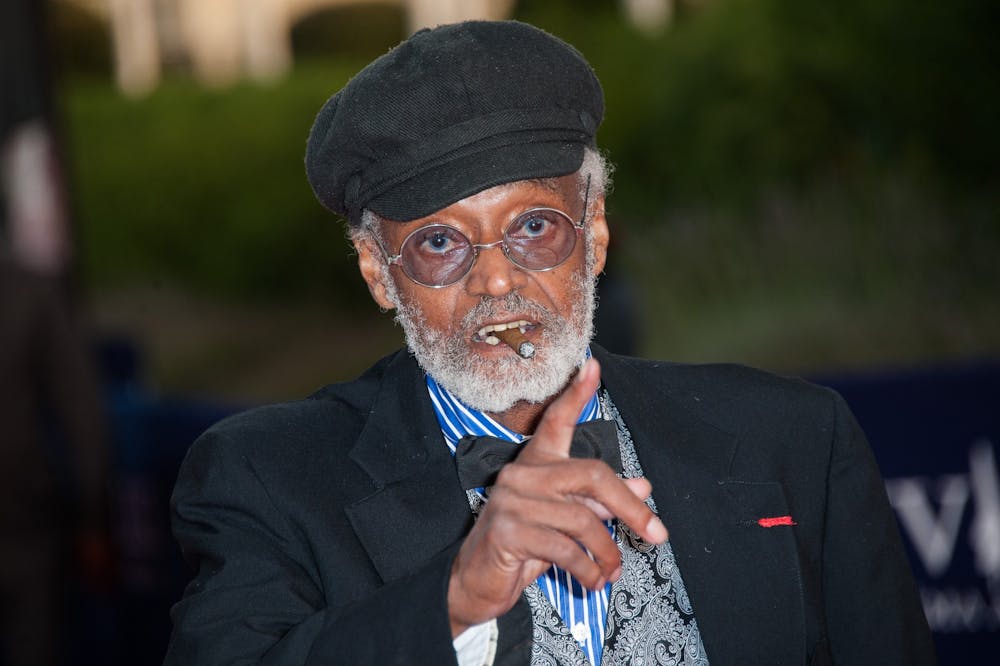There's a huge list of movies out there that are a staple in any Black household. "Boyz n the Hood," "Coffy," "The Last Dragon," the list goes on. Behind all of them is a legacy started by the late Melvin Van Peebles, a name not too many might know.
While Black cinema has a long history dating back to even silent films, they had a clear pattern in thought. The wide majority focused on stories meant to uplift the perception of the Black race. Plotlines were about so-called respectable Black folk living the American dream or they centered Black characters as performers. While these films were incredibly important, the trajectory of Black cinema remained largely the same — Blackness was an aspect to be uplifted, not shown in stark reality.
Great strides were made for Black people in the film industry with actors like Sidney Poitier becoming a Hollywood star. Still, these stories wouldn't change from the norm until the 1970s, when Melvin Van Peebles would make a name for himself.
Instead of refining Black life to a "respectable" portrayal fit for white audiences, Van Peebles wrote and produced "Sweet Sweetback's Baadasssss Song" in 1971, which is a film about a club bouncer framed for a crime he didn't commit. There was no air of appealing to a wider audience — it was squarely aimed at Black audiences. The story didn't center on a successful Black man that essentially behaved just as a white counterpart. Instead, it was about a Black orphan raised in a brothel by sex workers trying to outrun a police manhunt. Paired with a soundtrack from Earth, Wind, and Fire, this is what most would call the birth of the blaxploitation film.
Simply put, a blaxploitation film is any movie that centers on a few stylistic and narrative choices, like a focus on seemingly negative aspects of Black culture and the use of funk music in place of a more traditional soundtrack. While first focusing on Black audiences, it quickly grew to be an entire movement in film.
Van Peebles had showcased a never-before-seen perspective on race before "Sweetback." His 1970 film "Watermelon Man" is about a racist white man that wakes up to find himself suddenly Black. It surprised moviegoers by featuring a Black man in whiteface, instead of the reverse that had been a staple of early films. "Sweetback" was the film functioning as a blueprint for so many more filmmakers down the line.
There are countless directors who credit him and his work as inspiration for some of the most iconic films in Black culture. Classics like "Superfly" and "Do the Right Thing" wouldn't exist without the work Melvin Van Peebles did. He set the path for Academy Award-winning directors like Spike Lee and John Singleton and inspired his son Mario Van Peebles to get into filmmaking and make the classic 1991 film "New Jack City."
Mario presented the new Criterion Collection of films honoring his father at this year's New York Film Festival and said this of his father's first foray into independent filmmaking:
"[H]e makes ‘Sweetback’ and puts Black power on the screen for the first time. Audiences at first didn’t know what the heck it was."
Black power in film is so commonplace that people might forget who was first to put it in theaters. Melvin Van Peebles paved the way for Black filmmakers everywhere whether audiences know it or not.






